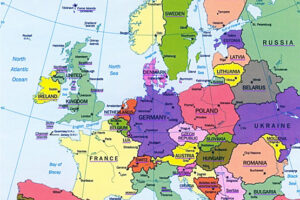Russia Understanders” in Europe (excerpt)

(PONARS Eurasia – Andrey Makarychev, Stefano Braghirolil, University of Tartu (Estonia) – August 16, 2016)
[Full text here http://www.ponarseurasia.org/sites/default/files/policy-memos-pdf/Pepm435_Makarychev-Braghiroli_August2016.pdf]
The Ukraine conflict reinforced the desire of Kremlin policymakers to establish connections with a range of anti-status-quo groups in Europe. Moscow’s broad aim is to catalyze support for and legitimize Russian sovereignty (and hegemony) and, perhaps, even the dissolution of the European Union project. The Kremlin has made ties with a variety of Russia sympathizers (“understanders”) in Europe a priority, and these groups and Moscow have found pragmatic use for each other’s platforms. Russian policymakers, however, seem to be aware that over-association with controversial European groups contains risks, particularly if Russian public perception views such connections as disagreeable ….
* * *
Conclusion
Russia is a trans-ideological actor that pragmatically transcends, if not disregards, ideological divides. In Putin’s trans-ideological project, all identities are instrumental
tools for legitimizing Russia’s hegemony and grounded in claims that Russia is protecting its sovereignty and fighting neo-fascism. Yet, domestically, the Kremlin’s
trans-ideological mix might be uncomfortable for some ideologically explicit groups in Russia that support Putin’s policies but dislike, for example, the leftist background of parties like Syriza that share an emancipatory and LGBT-friendly agenda.
The crisis in Ukraine became an important playground for testing Russia’s strategy in Europe. Russia’s European “understanders” legitimize Moscow’s Eurasian ambitions and the right to defend its interests and those of its “compatriots” by force and annexation. Some commentators predict that “a Fifth International, a loose collection of anti-status quo forces, is emerging out of the chaos of the Ukraine conflict.” This alliance might be based on solidarity in combatting allegedly pro-Nazi forces in Ukraine or supporting a return from supra-national regulation to a world of sovereign nation states. But such alliances not only threaten to negate Ukraine’s European identity. More alarmingly, they can justify a retrograde reinstatement of a “concert of great powers” which in practice can mean a new cycle of spheres of influence in Europe-an option that many in the West would find most unfortunate.
